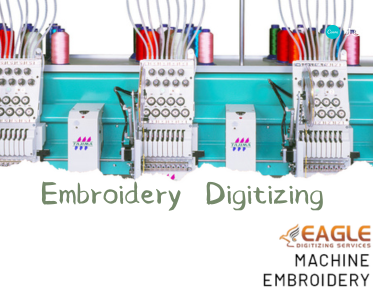Innovative Design Solutions to Meet Market Demands in Embroidery Manufacturing
The embroidery manufacturing industry is witnessing a dynamic shift, driven by technological advancements and evolving consumer preferences. To stay competitive, businesses must adopt innovative design solutions that not only meet but exceed market demands. One of the key areas of focus is embroidery digitizing, which has revolutionized the way designs are created and implemented.
Understanding the Market Demands
The modern consumer is more informed and discerning than ever before. They demand high-quality, personalized products that reflect their unique tastes and preferences. This trend is particularly evident in the embroidery sector, where customization is key. As a result, manufacturers are increasingly turning to advanced Embroidery Machines that offer greater precision and flexibility.
Technological Advancements in Embroidery
The integration of cutting-edge technology in embroidery machines has opened up new possibilities for design and production. Features such as automated threading, digital patterning, and real-time monitoring have streamlined operations, reducing production time and costs. Moreover, the advent of embroidery digitizing software has empowered designers to create intricate patterns with ease.
Innovative Design Solutions
To meet the growing demand for unique and personalized embroidery, manufacturers are exploring innovative design solutions. This includes the use of AI-driven design tools that can predict trends and suggest design modifications. Additionally, the use of sustainable materials and eco-friendly production methods is gaining traction, appealing to environmentally conscious consumers.
Customization and Personalization
Customization is at the heart of modern embroidery manufacturing. Consumers are no longer satisfied with off-the-shelf products; they want items that reflect their individuality. This has led to a surge in demand for embroidery design services that offer bespoke solutions. Manufacturers are leveraging digital platforms to offer customers the ability to design their own products, from choosing colors and patterns to adding personal messages.
Challenges and Opportunities
While the opportunities in the embroidery industry are vast, there are also challenges that manufacturers must navigate. The rapid pace of technological change requires continuous investment in new equipment and training. Additionally, the shift towards customization can complicate supply chains and increase production complexity. However, those who can successfully adapt to these changes stand to gain a significant competitive advantage.
Future Trends in Embroidery Manufacturing
Looking ahead, the future of embroidery manufacturing is bright, with several exciting trends on the horizon. The rise of smart textiles, which integrate electronic components into fabrics, is set to revolutionize the industry. Furthermore, the use of 3D printing technology in embroidery is expected to open up new avenues for creativity and innovation.
As the industry continues to evolve, companies like Eagle Digitizing excel in providing professional embroidery digitizing services, ensuring every design is crafted with unmatched precision. By staying at the forefront of technological advancements and embracing innovative design solutions, manufacturers can meet the ever-changing demands of the market and secure their place in the future of embroidery manufacturing.
.png)


.png)